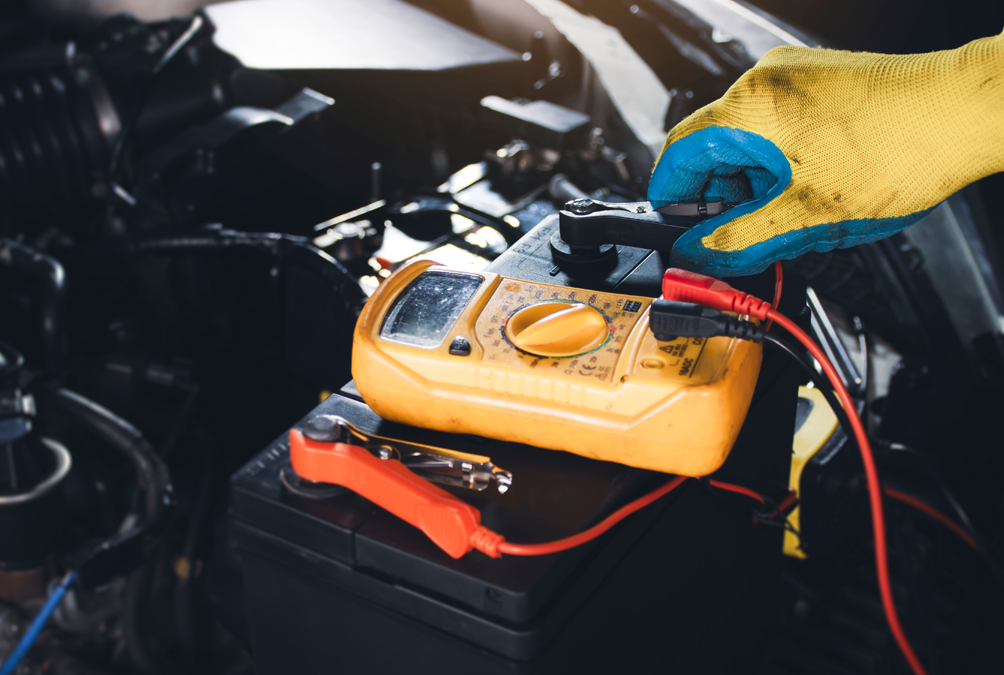
Factors Resulting in Alternator Failure to Charge the Battery
The primary functions of the alternator are to generate electricity for the vehicle's electrical components and to charge the battery. The alternator generates electrical energy by converting mechanical energy. Without an alternator, the battery would not be able to produce enough power to start the engine.
Even if you had a new car battery replaced and were able to start the engine, it would only run for about 10 minutes before the power would go out. The alternator is required to recharge the battery and to alternate electrical current through your vehicle's numerous components in order to keep them powered.
For more information, speak with your car mechanic the next time your car is scheduled for a car service in Reading.
When your vehicle develops electrical problems, many people become perplexed. These issues are more easily misdiagnosed, such as a bad battery instead of a bad alternator. To grasp the distinction, you must first comprehend what causes an alternator to cease charging. Then inspect the vehicle to see if the problem is with the alternator. If you have any doubts, look for full car service near me online and hire a trained technician to fix the problem for you.
Top five reasons why your alternator isn't charging
1. ECU error
The vast majority of people drive vehicles manufactured within the last 20 years. All of these newer vehicles are equipped with a central computer system, also known as an engine control unit (ECU), that manages and operates the vehicle's components and parts. This computer is also in charge of the alternator. As a result, a computer error could cause a malfunctioning alternator, preventing it from charging.
2. Failure of a drive belt or pulley
The belt and pulley generate mechanical power, which the alternator converts into electrical energy. If your serpentine belt, also known as an alternator belt or drive belt, is overstressed, it can snap. Over time, the pulley may also become damaged. In either case, the alternator will no longer be able to charge the battery.
3. Blown Fuse
Alternators in specific car models rely on a specific fuse to function. These fuses, on the other hand, can blow due to age or a power surge. When this occurs, the alternator is no longer capable of charging the battery. Because these fuses are not found in all vehicles, you should consult your owner's manual to see if yours does. If this is the case, it's worth investigating whether your vehicle's battery isn't charging properly by searching for a car service near me and having a car mechanic look at it.
4. Wiring Issues
The alternator generates power through a variety of wiring components in the car. Simply disconnect or cut one wire to turn off the power. As a result, the alternator will not charge the battery until the wire is repaired or replaced.
5. Failure of an alternator or battery
Alternators and batteries do not last forever, and each has a specific lifespan. A car battery has a life span of 2 to 5 years, depending on how frequently you drive and the environment in which you live. Batteries typically have a longer lifespan in colder temperatures and a shorter lifespan in hotter temperatures. Alternators are expected to last seven years or 80,000 miles on average, but there are always exceptions.
One of the most common causes of car alternator failing to charge a battery is that it has failed. When the engine is turned off, connect a voltmeter to the battery to easily measure the voltage. The voltage should be in the range of 12 to 13 volts. When the reading is lower, you can assume that there is a problem with the battery.
If the battery is good, start the vehicle and rev the engine to 2,000 rpm. The alternator will be put under a lot more strain as a result of this. A decreasing voltmeter reading indicates that you have an alternator problem.
Frequently Asked Questions (FAQ’S)
Is it possible to jump-start a car that has a faulty alternator?
When an alternator fails, it is obvious that it must be replaced as soon as possible. A bad alternator, on the other hand, can be used to jumpstart a vehicle, allowing you to get it back on the road and drive it to a nearby garage.
What should I do if my alternator isn't working properly?
Another simple test is to inspect your interior lights. An alternator charges your battery while your car is running. If the interior and dashboard lights illuminate brightly but gradually fade, this indicates an alternator problem.
Is it possible for a malfunctioning alternator to destroy a brand-new battery?
Is it possible for a faulty alternator to destroy a brand-new battery? Yes, very easily. A faulty alternator can overcharge the battery, causing it to fail. An alternator that is undercharging will leave the battery flat, hastening its demise.